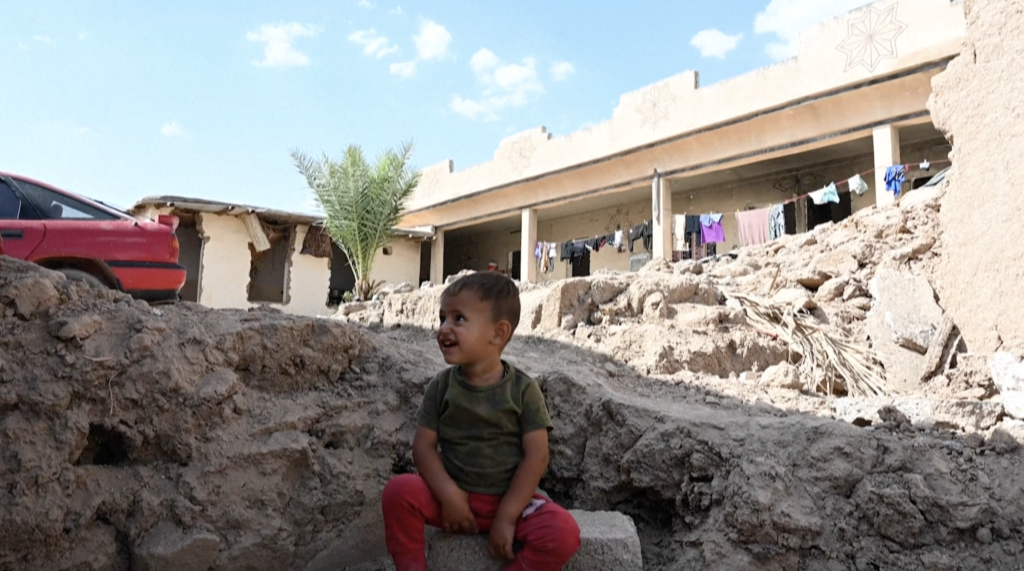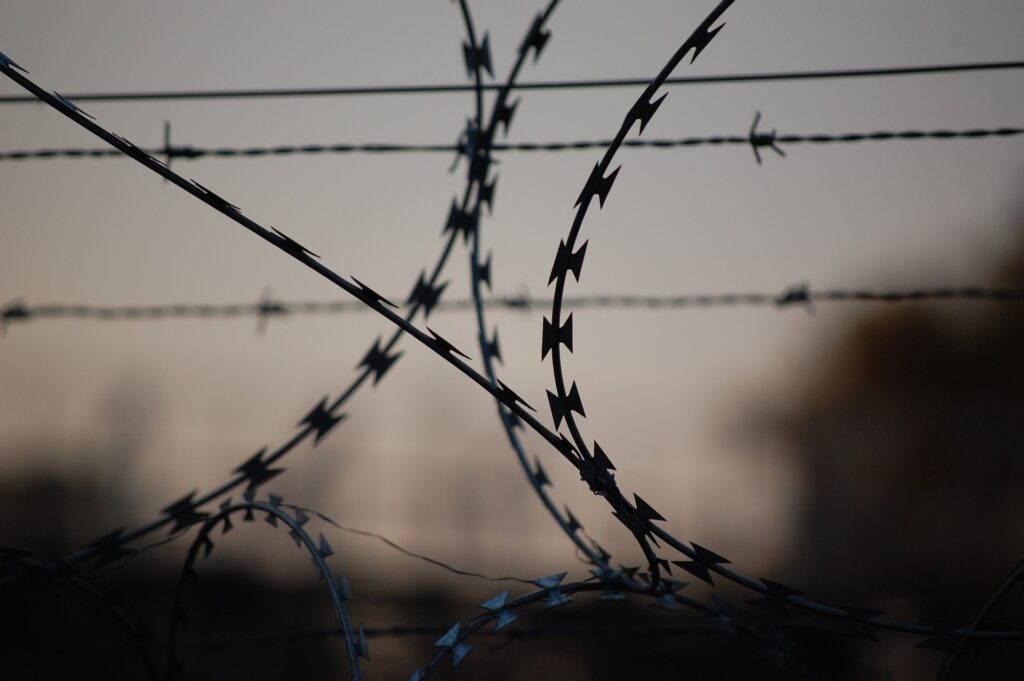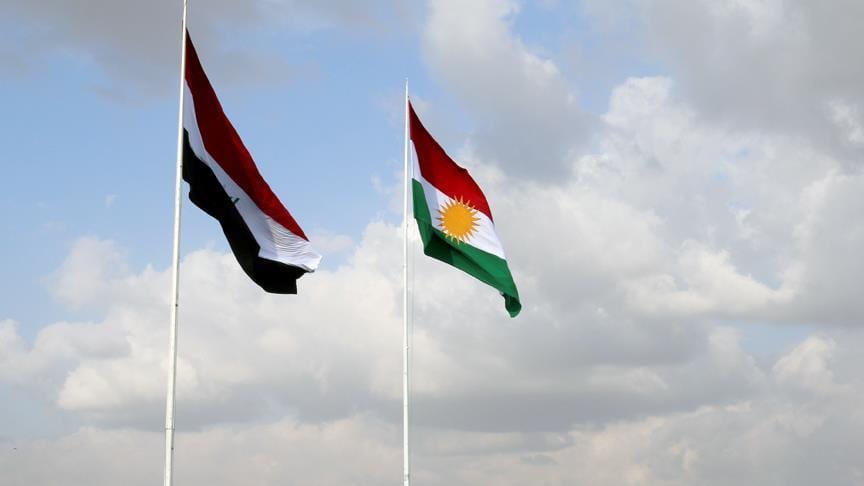Coronavirus crisis in Myanmar, media restrictions in Nigeria, and a bombing in Baghdad: The Cheat Sheet

Our editors’ weekly take on humanitarian news, trends, and developments from around the globe.
On our radar
Myanmar’s unfolding COVID-19 disaster
Skyrocketing deaths, a shattered healthcare system, and a deep distrust of junta authorities amid a coup crisis – Myanmar’s spiralling coronavirus disaster is spurring calls for emergency intervention amid warnings the Southeast Asian nation will become a “super spreader”. There are oxygen shortages, queues outside crematoriums, and hospitals and clinics are turning people away. Officially reported daily deaths have jumped exponentially – from 13 at the start of the month to more than 300 on 22 July – but the true scale of the crisis is obscured by minimal testing and a collapsed health system. The EU’s humanitarian aid arm, ECHO, says Myanmar’s COVID-19 outbreak is “likely the worst in Southeast Asia”. Rights groups say the military junta has weaponised the virus as it targets healthcare staff aligned with the anti-coup movement. This week, Myanmar’s government in exile, the National Unity Government, said it has a vaccination plan and a COVID-19 task force, but it needs international support. Former senior UN rights monitors are calling for a “massive” intervention: “An international presence of health and medical personnel has become critical,” they said in a statement.
Nigeria: A bad news factory. But for how long?
This week, an air force jet was shot down by “bandits” in northwestern Nigeria: The pilot survived, making it on foot through the expanding, lawless territory where government presence is minimal. The really bad news is that if he hadn’t made it, Nigerians may never have known. That’s because the broadcasting regulator has told TV stations to limit their reporting of the country’s surging insecurity. The violence, for example, that killed more than 1,000 people in June alone, and the growing sway of armed gangs that have the firepower to bring down an Alpha jet. But rather than tackling the causes of unrest – from banditry to kidnapping and secessionist violence – the government is going after the reporters covering it. In the wake of its Twitter ban in June, it’s now looking to tighten restrictions on the press and social media companies with a draft law that harks back to the bad old days of military dictatorship.
Slow rebuilding (and militant regrouping) in Iraq
On 19 July, a suicide bomb killed at least 30 people in Baghdad, exploding in a busy market as people prepared for the Muslim holiday of Eid al-Adha. The so-called Islamic State claimed responsibility for the blast, which came nearly four years after the liberation of Mosul, and is a stark reminder that the remnants of the militant organisation are regrouping to stage scattered attacks across the country. Violence is not the only legacy that IS, and the fight against it, left behind: Read this report from the Norwegian Refugee Council to hear from Mosul residents on what it has been like to try to restart their lives despite a failure to rebuild much of the city’s devastated homes, infrastructure, and economy. There are still around 1.2 million Iraqis displaced across the country, including 257,000 in Nineveh province, where Mosul sits, and aid groups have warned that these people are being exposed to new risks as camps close, leaving some with nowhere to go.
More questions than answers in Haiti
Tensions ran high ahead of former Haitian president Jovenel Moïse’s 23 July funeral, weeks after his 7 July assassination. Although Prime Minister Ariel Henry has been sworn in as the Caribbean country’s newest leader, Haiti’s troubles are far from over. “One of my priority tasks will be to reassure the people that we will do everything to restore order and security,” Henry said at his 21 July inauguration. Rampant gang violence has stalled the delivery of humanitarian aid and displaced more than 19,000 people who have fled to temporary shelters – all while police are outnumbered by gangs in pockets of the capital, and Haiti buckles under a rising tide of COVID-19 cases. Elections are scheduled for this year, but it’s unclear how Henry plans to improve security in the coming weeks or months. US President Joe Biden has said sending troops was “not on the agenda”, but the US did announce a new Haiti envoy, Daniel Foote, a career diplomat. Analysts and commentators, meanwhile, have been asking familiar questions (with few answers): What lessons can be learned from the latest crisis? And what has more than $13 billion in aid done to help the country and its people?
Peru’s presidential in-tray
Pedro Castillo, a school teacher-turned-politician is to be sworn in on 28 July as Peru’s new president, overcoming weeks of election fraud allegations (with little to no evidence) made by losing opponent Keiko Fujimori, the daughter of an imprisoned former president. But this is the least of it. Having pledged to redraft the constitution, raise taxes on mines, and expel migrants to “tidy up the house”, Castillo assumes office amid a profound political crisis and growing social polarisation, not to mention by far the highest COVID-19 death rate per capita in the world. Chronic corruption has made the pandemic even worse in Peru, where one in 100 children has been orphaned by the coronavirus, according to a Lancet study. Poverty – considered as those earning less than $100 a month – is also up 10 percent since 2020 and now affects nearly a third of the population. Castillo has pledged reconciliation, and Fujimori, at least for now, has vowed to accept the election results, but the road to recovery is long.
What really drove South Africa’s protests?
The looting in South Africa this month cost an already anaemic economy $3.4 billion. In KwaZulu Natal alone, one of the two provinces (the other being Gauteng) where mobs took over entire malls, at least 40,000 businesses were affected, leaving thousands jobless. The death toll has climbed to 337, with a COVID spike also expected – partly due to the derailment of scheduled vaccinations. The political bill has yet to be calculated: President Cyril Ramaphosa has blamed a shadowy network of political enemies for the “insurrection”, but they have not been publicly identified. The violence followed the arrest of former president Jacob Zuma over his refusal to attend hearings on corruption during his tenure. Although poverty and hunger drove much of the looting, there is evidence that pro-Zuma forces – some within the security services and the ruling ANC – triggered the chaos: They severed key transport routes, and called on people to attack firms seen as supportive of Ramaphosa and his pro-business policies.
In case you missed it
AFGHANISTAN: Violence continues to build in Afghanistan even as Taliban and Afghan government negotiators pledged to seek a “political settlement” after concluding talks in Doha on 18 July. The Taliban have made rapid territorial gains in recent weeks: They now control more than half of Afghanistan’s districts, and are surrounding provincial capitals.
KENYA: The government’s COVID-19 social protection programme failed to benefit the vast majority of vulnerable families in Nairobi, according to Human Rights Watch. In a 66-page report released this week, it said much of the $100 million set aside by the government for the poor was lost to “cronyism, nepotism and outright favouritism”.
MALI: Interim President Assimi Goïta survived an attempted assassination at a Bamako mosque this week. The military officer became head of state in May after leading a second coup in the West African nation in just nine months.
SECURITY: In 2020, there were 276 major security incidents affecting aid workers and 108 killed, according to the Aid Worker Security Database. The number of incidents equals last year’s tally, and 2017 was the worst year for fatalities. South Sudan recorded the most events, according to an update published by consultancy Humanitarian Outcomes.
SYRIA: Shelling by the Syrian government reportedly killed seven civilians in the rebel-held northwestern province of Idlib on 22 July, including several children. The last few weeks have seen an increase of deadly violence in the region.
TANZANIA: Freeman Mbowe, the leader of the main opposition party Chadema, and 10 other party officials were arrested on 21 July. The detentions mark the end of the honeymoon period with President Samia Suluhu Hassan, the party said. Hassan came to power following the death in March of her authoritarian predecessor, John Magafuli, and initially signalled a more conciliatory approach towards opposition.
VACCINES: Pfizer and BioNTech have announced plans to manufacture their COVID-19 vaccine at South Africa’s Biovac Institute. The first doses will be produced in 2022 and will be available exclusively to African countries. However, Médecins Sans Frontières described the deal as “restrictive”, and said it wouldn’t be enough “to achieve vaccine independence on the African continent”.
YEMEN: The Yemeni rial has fallen to new lows in the south of the country, making it even more difficult for people already struggling with hunger to buy staples like bread. The Houthi rebel-run north and the internationally recognised government-run south have separate central banks and different monetary policies, leading to a divergence in the exchange rate between the two regions.
Weekend read
Aid organisations in Ethiopia are facing growing hostility after the government accused them of supporting rebel forces in Tigray. In a statement last week, Ethiopian official Redwan Hussein said unnamed agencies were “fabricating facts and figures” and delivering weapons and supplies to the Tigray Defence Forces (TDF). As explained in our weekend read by Africa Correspondent and Editor, Philip Kleinfeld, the allegations – alongside online misinformation, and critical local media coverage – heighten risks for frontline aid workers, 12 of whom have already been killed since conflict erupted in November 2020. They could also further disrupt humanitarian operations amid a blockade that’s left aid groups unable to get sorely needed supplies into the region. The UN’s World Food Programme says about 100 trucks a day are needed to supply food and other aid for up to five million people. Yet only a few dozen international aid trucks and two UN passenger flights have reached the region in the past month. Conflict, meanwhile, is deepening: Rebels have expanded their operations in recent days and the government has begun drafting militias from across Ethiopia’s ethnically-based regions.
And finally…
If at first you don’t succeed...
A new deal signed by the UK and France on 20 July to reduce the number of asylum seekers and migrants crossing the English Channel looks very similar to one signed last year with the same goal, which – by the UK Home Office’s own admission, and judging by the numbers – hasn’t worked. In 2020, around 8,417 people crossed the Channel to the UK. In November, the UK offered funding and surveillance support in exchange for France doubling the number of police officers patrolling its northern coastline. France has reportedly prevented twice as many crossings as it did during the same period last year, but at least 8,452 people have already crossed the Channel anyway. Facing increased border enforcement, smugglers changed their tactics, according to a UK Home Office press release, “moving further up the French coast, and forcing migrants to take even longer, riskier journeys”. Despite the ineffectiveness of last year’s deal – and even though overall asylum applications are down – it’s apparently time to try, try again, with French police patrols set to double again and more funding for surveillance technology. Will this time be any different?



